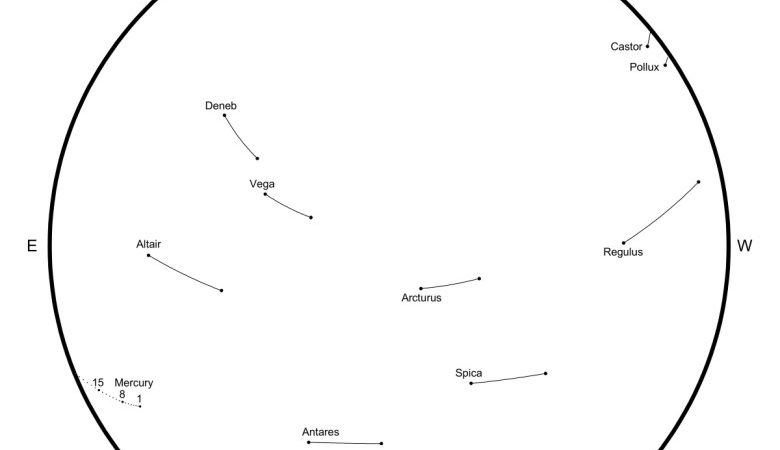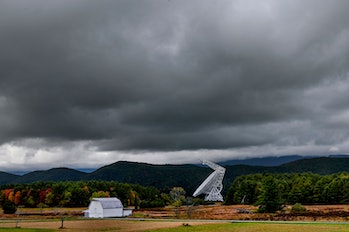Women in STEM: Meet some of the Nicholls professors leading through teaching and research – Houma Courier
— First in a two-day series.
At Nicholls State University in Thibodaux, women are breaking barriers by teaching and leading research in science, technology, engineering and math.
Studies show that while women have made gains, these so-called STEM fields remain dominated by men. For instance:
► Women represented 8% of STEM workers in 1970 but 27% in 2019, a U.S. Census study found earlier this year. Nonetheless, men make up 52% of all U.S. workers but 73% of all STEM workers.
► Only one in 20 college deans and department heads are women in STEM fields, according to research by Laura McCullough, a science professor at the University of Wisconsin-Stout. Women make up just over half of the U.S. population and 57% of college graduates. But they represent only 39% of STEM bachelor’s degree recipients and lower percentages in specific fields such as physics, engineering and computer science.
► Women make up nearly half of all employees in the U.S. but hold only 29% of STEM jobs, according to the American Association of University Women.
“If women and underrepresented groups joined the STEM workforce in proportion to their representation in the overall labor force, the STEM worker shortage would disappear,” the group found.
All of this comes as research shows STEM jobs will be among the fastest-growing in the U.S. through 2024, and those fields pay salaries two-thirds higher than non-STEM careers.
Here are a few of the women at Nicholls, all PhDs, who are making a difference through their STEM teaching and research.
Kaisa Young: Opening minds to the universe
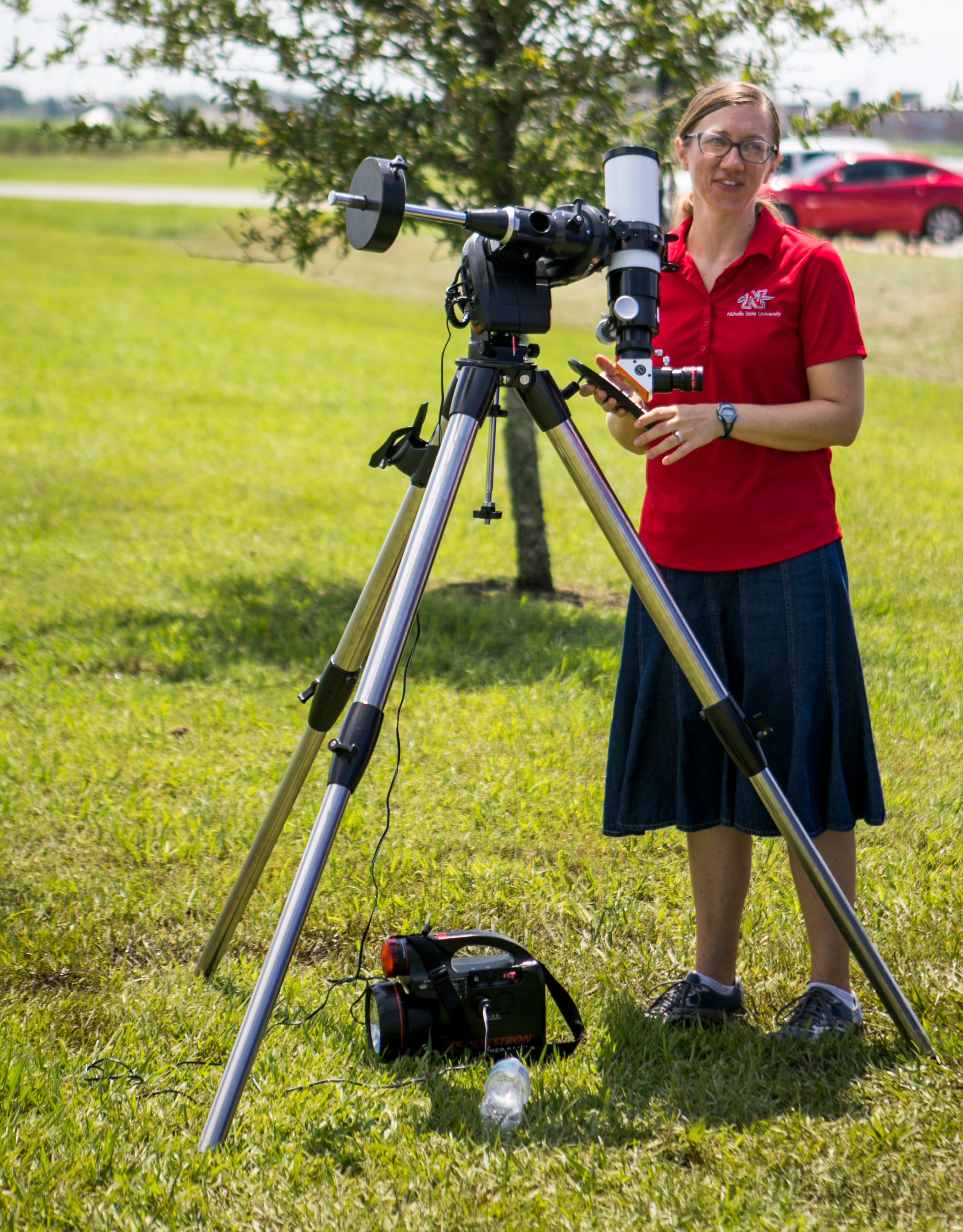
Associate professor Kaisa Young is head of the university’s Chemistry Department. Before she arrived, Nicholls hadn’t taught a basic astronomy course for more than 10 years. Nine years later, she is still teaching astronomy.
Young said she appreciates the cross-section of students with different passions, goals and interests she gets to teach.
“I just love showing them a little bit of science and how amazing the universe is,” Young said.
In astronomy, her research has included studying the Spitzer Space Telescope and analyzing data on objects detectable through infrared in space.
“I’ve really been trying to show students that even if they might not remember the phases of the moon, what we learn can really open their minds to a new way of thinking. It allows them to look at the world differently and gives them skills in critical thinking,” Young said. “In my class, we really emphasize information literacy to recognize what’s true and what’s false. They’re gaining skills that they’re going to use in their life beyond just memorizing science facts.”
To Young, the most important thing for a woman in STEM is to feel that you are just as worthy as anybody else in that field. Young describes something called “imposter syndrome,” where a person has doubts about his or her skills or worthiness to be in a certain position, whether a college class or working with colleagues.
“That was something I felt a little bit and I just want young women who are thinking about science or like science to know that they can do it. Their ideas are worthy, and they might not get an A in everything. There might be failures along the way, but that’s OK,” Young said. “It’s that support from other women and men that can go a long way.”
Along with her husband, Chad Young, who is also a science professor at Nicholls, they also work with students in elementary and secondary schools, including those who come from low-income or marginalized communities, to make science accessible.
“We want everybody, even if they hadn’t had a strong background in science, to see that science is an option for them,” she said.
Brigett Scott: Feeding mind and body
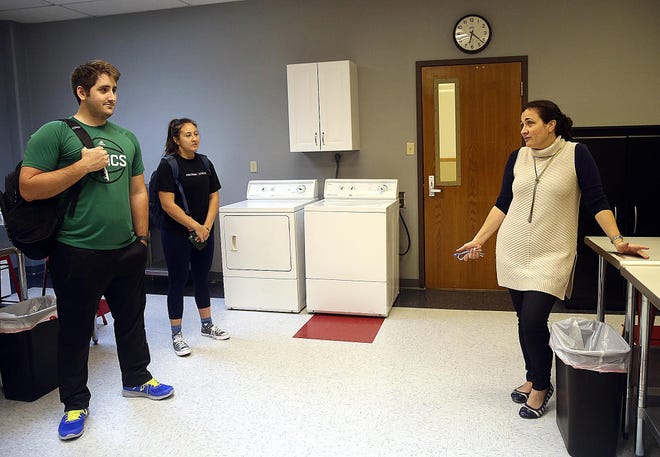
Brigett Scott serves as associate dean for the College of Sciences and Technology, director of the University Honors Program and interim department head of Applied Sciences at Nicholls.
Scott has always loved medicine and food, which lend themselves well to her passion for dietetics. Dietetics is the the study of the diet and its effects on health, usually focusing on the scientific application of nutrition.
“Hippocrates said that food is medicine,” Scott said. “What drew me the most is really knowing what we put into our body influences so much of our health and our ability to function.”
Scott teaches courses that lead students through small-scale projects to help them understand the importance of research.
“We want to set our students up for success and reinforce that everything we do as dietitians goes back to research-based and evidence-based practice,” Scott said. “We’re not just doing things because they sound good but because they are effective.”
Scott said leading Nicholls’ honors program gives her the opportunity to interact with students outside her department.
“I have a lot of different interests, so anything that has to do with being able to learn more and interact with people from all of the different faculties has been really great,” Scott said.
In STEM, Scott said, women make just as great leaders as men. The keys, regardless of gender, are having a passion and desire for your field of study.
“If you want to make a difference in that area, you can do it,” Scott said. “I hope I’m a good example and that students look at me thinking, ‘Hey, if Dr. Scott can do it, I can do it too.’”
Allyse Ferrara: Exploring begins in your own backyard
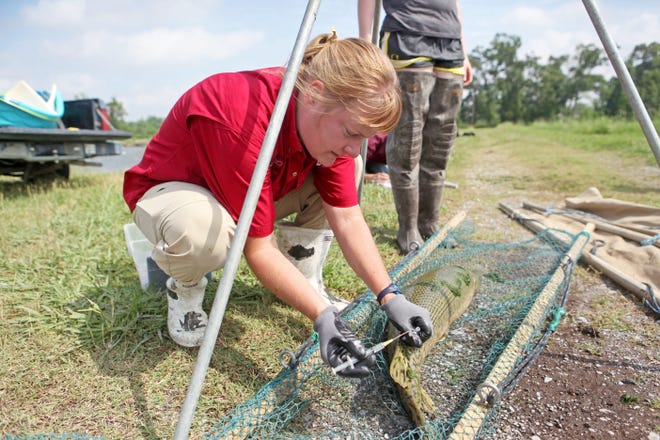
Allyse Ferrara is the Distinguished Service Professor of Environmental Biology at Nicholls. She has been an expert featured on the National Geographic Channel’s “Monster Fish” program and she has done fieldwork with students in Costa Rica.
Yet Ferrara said she still finds great lessons in her own backyard. Even in her entry-level classes, Ferrara emphasizes the importance of hands-on learning.
More:Nicholls professor gives students memorable learning experiences
“Getting students out into the field is so important. For example, we can do a bayou cleanup, beach sweep or a variety of plantings with our students. A lot of the students would initially gripe about having to complete service learning hours like ‘I can’t believe we’re doing this’ but after they did, they loved it,’” Ferrara said. “So to me, service-learning is so important. If you haven’t experienced the outdoors, then how can you appreciate the uniqueness of our area?”
Ferrara and fellow professor Solomon David have a National Science Foundation grant in collaboration with Michigan State University to do research in evolution, development and animal biology through the spotted gar.
The gar has more genetic similarity with humans compared to other lab fish, such as minnows and zebrafish, Ferrara said.
“Gar can be bridges or Rosetta Stones used to translate and interpret results from other studies done in different fish species thus making other studies more relevant and applicable to human medicine. We can also use the gar as a biomedical model to help us understand different types of diseases that may be affecting humans,” Ferrara said.
As for being a woman in STEM, Ferrara suggests greater understanding of the value of diversity is needed in all aspects of life, including science and research.
“Diversity increases the reach of scientific information into the community by allowing input and participation by more and different viewpoints. It is silly and self-defeating to exclude more than half of the population,” Ferrara said. “Having a diversity of minds and viewpoints working on a problem produces a more robust solution or understanding that can be appreciated by more of our community.”
Coming Tuesday: Profiles of other women teaching and leading research in STEM at Nicholls.




